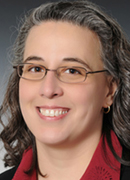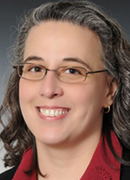Professor Ruth Ann Armitage Receives NSF Grant
Dr. Ruth Ann Armitage from the Chemistry Department recently received a grant for $122,630 from the National Science Foundation (NSF) to support her project entitled RUI: Evaluating the Limits and Capabilities of Plasma Chemical Oxidation for Accelerator Mass Spectrometric Radiocarbon Dating in Archaeology.


Dr. Armitage and her team of students and archaeologist collaborators seek to demonstrate the accuracy, precision and minimum sample size that can be radiocarbon dated with plasma chemical oxidation sample preparation. They plan to accomplish this through comparative studies of rock painting samples, calcined bones, and textile fragments. This work will aid in understanding the effects of chemical pretreatments on samples dated in this way, as well as improving the method so that it can become more widely applicable. The proposed project will investigate the fundamental limitations of the PCO method in order to optimize its use for otherwise difficult to date archaeological materials. The project examines minimally-destructive and rapid methods for reliably dating these types of samples with AMS radiocarbon analysis. Successful completion of the proposal’s objectives will improve the ability to date archeological materials.
This project is a return to work that Dr. Armitage first began at Texas A&M University as a graduate student with Dr. Marvin Rowe, who originated the plasma chemical oxidation method for preparing rock painting samples for radiocarbon dating. Both undergraduate and graduate students will be involved in applying the PCO method along with a variety of analytical techniques – FTIR and Raman spectroscopies, high resolution ambient ionization mass spectrometry, and GC-MS – to achieve the goals of this interdisciplinary project that brings together archaeology and chemistry.
Dr. Armitage appreciates all the support and internal funding that provided her the opportunities to submit a successful proposal, especially that from the staff in the EMU Office of Research Development and from Faculty Research Fellowships, Provost’s Research Support Awards, the Seller’s Fund, and the Chemistry Department.
Posted 1/9/2020.
